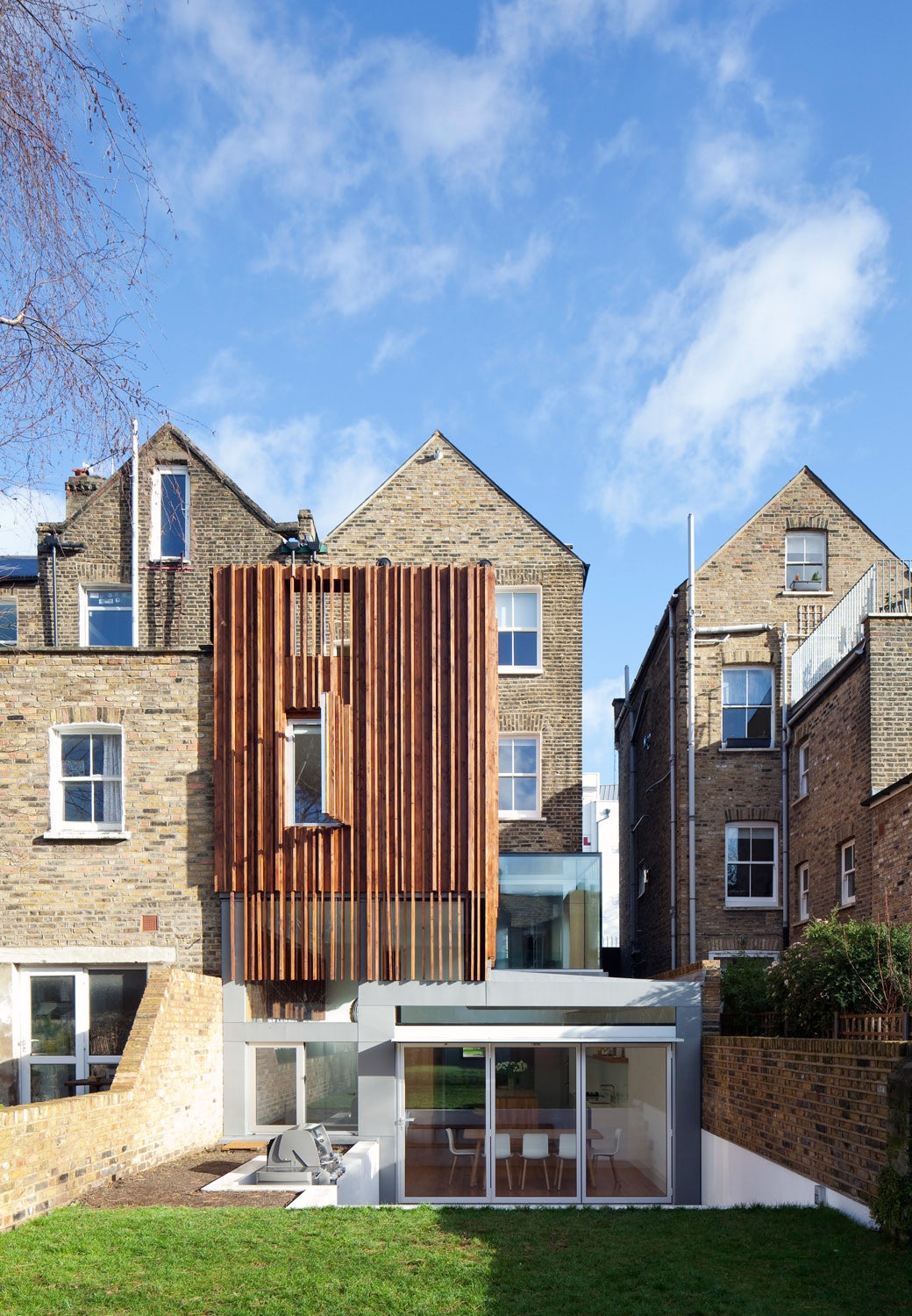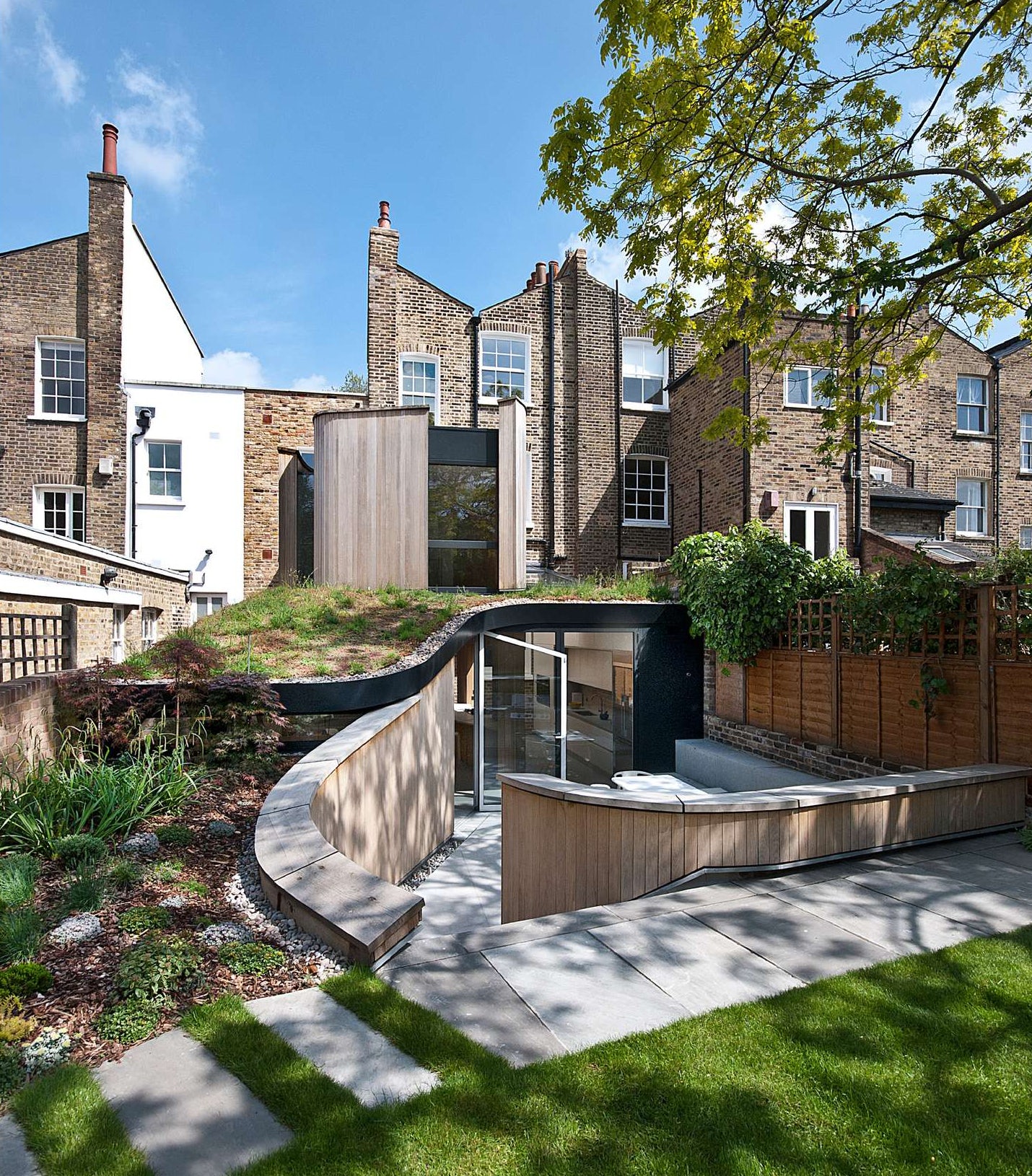London, one of the most expensive real estate markets in the world, has an acute housing problem. It has a rich historical housing stock of 18th- and 19th-century townhouses, as well as a large number of modernist housing estates that dot the city. Furthermore, there are a few contemporary examples of emerging skyscraper typologies, but the scale of the city remains overwhelmingly low-rise. This creates certain problems for the city’s residents and developers, who must balance a need for increased space for a growing population while maintaining the unique character of this picturesque city.
The low-slung townhouses of London have seen an increasing number of modern extensions and additions to their structures as their values continue to explode. Hoping to create more space, or perhaps open up previously dimly lit spaces, these projects respond to the constraints and opportunities offered by the cut-throat urban real estate market. Injecting new materials and forms into the classically reserved townhouses, the residential additions and extensions featured in this collection add a dynamic tension and juxtaposition to the historical buildings they effectively reinvent.

© Paul Archer Design

© Paul Archer Design
Power House in London by Paul Archer Design, London, United Kingdom
Located in the North London neighborhood of Highbury, this glass and timber extension adds a double-height kitchen and dining area as well as a below-ground floor. The frameless glass panels are partially shaded by a series of wood battens that stretch from the exterior inwards.

© Studio Gil

© Studio Gil
Concrete House by Studio Gil, London, United Kingdom
Featuring a rough material palette of white concrete, plywood, reclaimed timber and polished steel, this East London townhouse extension opens up sightlines and views through the interior of the home. These materials continue into the garden area, which contains planters, barbecue equipment and benches.

© Pitman Tozer Architects

© Pitman Tozer Architects
Lateral House by Pitman Tozer Architects, London, United Kingdom
A three-story brick and glass extension creates enlarged floor plates for this East London townhouse, while a rear garden timber-clad structure reorients the home towards the open terraced courtyard. Large glass sliding doors connect the subterranean level toward the multiple levels of the outdoor space.

© Scott Architects

De Beauvoir House by Scott Architects, London, United Kingdom
This Hackney residential extension to a four-bedroom home features sweeping sculptural forms of timber and limestone that echo the materials of the traditional home while invoking modern styles. The garden dining space is complemented by a green roof structure with a vertically inserted volume that pools light onto interior brickwork.

© Platform 5 Architects

© Platform 5 Architects
Book Tower Houseby Platform 5 Architects, London, United Kingdom
The dominant feature of this Hampstead townhouse addition is a double-height library located at the core of the building, which has light-colored shelving that mirrors the movement of the new form of the central staircase. The ribbed wood side extension clad in zinc panelling highlights the home and introduces diffused light into the dining space.

© forrester architects

© forrester architects
Harcombe by forrester architects, London, United Kingdom
Featuring a similarly ribbed extension of wood joists with a plywood coffered ceiling, this extension to a Victorian mid-terrace home introduces bold forms to the classic building that riffs off the roofline of the London cityscape. A centrally located kitchen bisects the living and dining spaces.

© French+Tye Ltd

© French+Tye Ltd
Albyn Roadby Gresford Architects, London, United Kingdom
Another ribbed timber and zinc-clad extension plays off the surrounding rooflines of the traditional neighborhood, with a light-filled kitchen and dining space facing a rear garden.

© Platform 5 Architects

© Platform 5 Architects
Mapledene Roadby Platform 5 Architects, London, United Kingdom
The architects inserted a number of new components into a previously rundown Hackney home, including a glass-encased dining roof and a protruding, modern take on the traditional Victorian “oriel window.”




